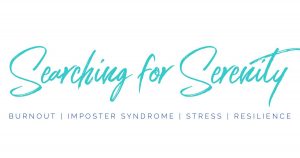Green shoots or frazzled ends?
The skies are blue, the temperatures are slowly rising and I’m already behind with my veggie growing plans for the year. Spring is a beautiful, reinvigorating time, unless of course, you’re experiencing symptoms of burnout in which case it’s more likely to all feel like a bit of a cruel joke.
Whilst everyone and everything around you suddenly gets it’s green shoots and cute lambs and bunny rabbit energy on, you feel more like a leftover crepe from pancake day. It’s really easy for symptoms of burnout to coalesce with feelings of missing out, being behind and completely exhausted and overwhelmed.
But what if it isn’t just you… what if you’re not alone and there’s something very real going on?
Burnout is an occupational phenomenon that is caused by chronic workplace stress that isn’t successfully managed – everything from the everyday pressures of high volume workloads, inadequate resources to offer full support, being unable to switch off for weekends, evenings and holidays to the vicarious trauma of dealing with difficult work or stressed out clients. In a distress purchase industry like law, chronic workplace stressors abound.
Burnout has three key components that show up; exhaustion and depletion, reduced professional efficacy and negativity, cynicism or increased mental distance from one’s job. Essentially if you’re always tired, struggling to keep up with your work and wondering why you’re bothering or feeling unable to make an impact, you could well be experiencing burnout.
And honestly, you’d be far from the only one.
Gallup polls taken immediately prior to the pandemic found a rapidly increasing section of the population experiencing symptoms of burnout all the time or sometimes – between two thirds and three quarters of workers, and LawCare’s Life in the Law study found that the average lawyer is at high risk of burnout – whether you’re a lawyer or in the world surrounding them the likelihood is that you’re drawn into this.
increasing section of the population experiencing symptoms of burnout all the time or sometimes – between two thirds and three quarters of workers, and LawCare’s Life in the Law study found that the average lawyer is at high risk of burnout – whether you’re a lawyer or in the world surrounding them the likelihood is that you’re drawn into this.
Burnout is also a highly contagious condition – if I’m experiencing burnout and you work closely or in proximity to me, the likelihood is that you will feel the impact, whether it’s because of my reduced efficacy and presenteeism affecting the distribution and demand of a team workload or because of my ‘emotional leakage’ (I know, what a phrase, but if you’ve ever worked with a ‘raise your voice and slam a file on the desk to punctuate’ kind of a manager then you know exactly what I’m talking about!). We all operate within systems, whether that’s our teams, departments, businesses or the wider industry, or at home our friends and family members experiencing these pressures. Where they struggle, we will most likely try to fill the gap.
It piles up, and it’s exhausting.
So how to cope if you’re feeling less than fresh and left ever-further behind the springing shoots of growth around you?
The first thing is to understand what is going on here. Understand what burnout is, and is not, and get appropriate support. Whether that’s checking everything is ok at the doctors, speaking honestly with friends about what’s going on for you instead of flipping your hair and telling them you’re ‘busy’ and ‘fine’ when you’re actually struggling, or working with a coach or therapist to get deeper into why this is happening for you and creating sustainable solutions. Sometimes just understanding that burnout is something that affects the majority of us at some time or another and that it only affects people who care deeply about doing a good job and who give a lot of themselves for their work and loved ones, is enough to start making change.
From there, start critically analysing what you do and why.
Where are you offering to do work you don’t enjoy, just to help other people? Where are you soaking up the stress and tension for other people, trying to make their lives better at detriment to your own? Over the past 6 years I have worked with hundreds of individuals and every single one of them has fallen into the trap of forgetting themselves in the balance. Have regard for yourself at the point of decisions being made, consider whether you want to do it/need to do it/are doing it out of obligation and a need to be seen as nice, rather than doing it because it’s the best use of your time, energy and resources. Start saying no, not because you’re selfish, but because you know your time and energy is best served elsewhere and you can’t be all things to all people.
Finally, make rest, switching off, creativity and play absolutely vital parts of your life.
They are the first thing to  go when we’re tired, overwhelmed and trying to catch up but they are non-negotiables. You can’t function well or at all without adequate sleep, active and passive rest and recharge moments with the things and people that make the work worthwhile.
go when we’re tired, overwhelmed and trying to catch up but they are non-negotiables. You can’t function well or at all without adequate sleep, active and passive rest and recharge moments with the things and people that make the work worthwhile.
Protecting yourself and striving for sustainability is a goal worth pursuing; we need you to do your brilliant work as well and for as long as possible. So, take care of yourself – for the benefit of everyone around you, even if not yourself.
Small shifts, even just recouping small wins like a couple of extra items off your desk or one less project to manage, could just shift you from scorched earth to the start of new growth.
About Searching for Serenity
 Leah Steele is a coach, mentor and trainer, and the founder of www.searchingforserenity.co.uk A former lawyer who experienced burnout herself, Leah now works with individuals and law firms to understand issues of burnout, how they show up, affect our work, productivity and profitability, and she helps create resilient, sustainable solutions to make work less exhausting and more rewarding for all.
Leah Steele is a coach, mentor and trainer, and the founder of www.searchingforserenity.co.uk A former lawyer who experienced burnout herself, Leah now works with individuals and law firms to understand issues of burnout, how they show up, affect our work, productivity and profitability, and she helps create resilient, sustainable solutions to make work less exhausting and more rewarding for all.
About Cashroom
 Cashroom provides expert outsourced accounting services for Law Firms including Legal Cashiering, Management Accounts and Payroll services. Our mission is to free lawyers from the complexities of legal accounting by supporting the industry with accurate management information and allowing lawyers to do what they do best – practice law.
Cashroom provides expert outsourced accounting services for Law Firms including Legal Cashiering, Management Accounts and Payroll services. Our mission is to free lawyers from the complexities of legal accounting by supporting the industry with accurate management information and allowing lawyers to do what they do best – practice law.
We’ve been with Cashroom for quite a few years now, and I would never go back. In any business, and particularly in times of uncertainty, it’s important to control your costs, and that’s exactly what you help me do.




